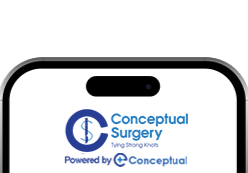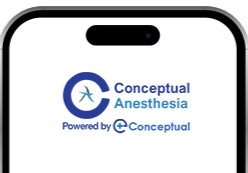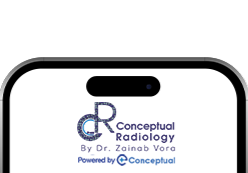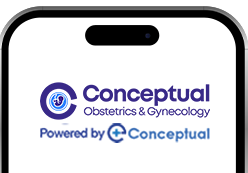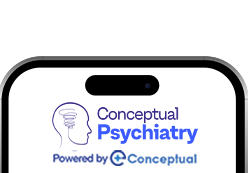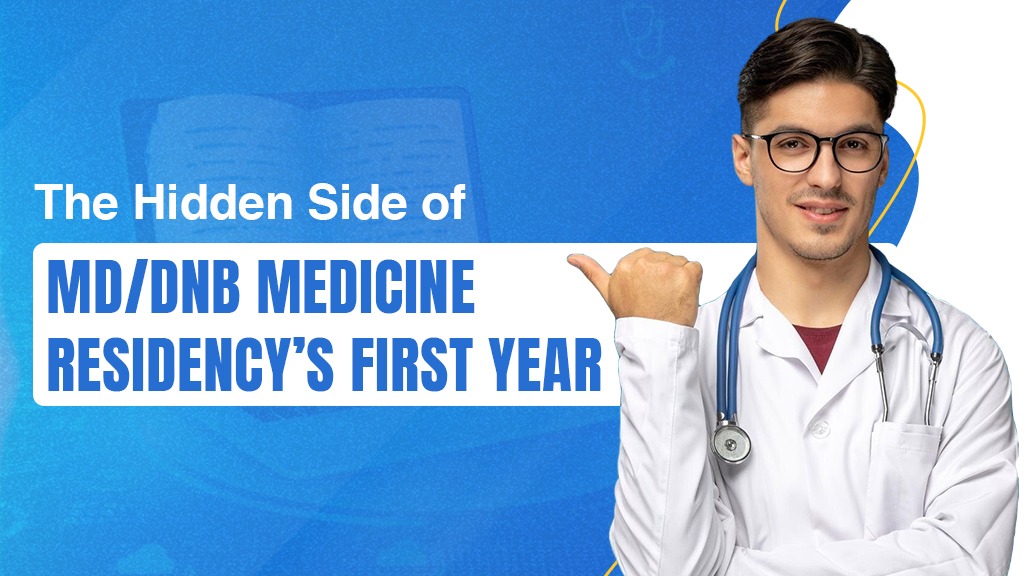
Estimated reading time: 5 minutes
The first year of MD/DNB Medicine residency is such a happy moment for every doctor. It represents years of relentless study, countless sleepless nights before exams, and the thrill of clearing competitive entrances like NEET-PG, MD/DNB exams, and other milestone tests, all condensed into a single achievement. Yet, as residency begins, reality sets in, and it is often far removed from the expectations shaped during medical school or preparation days.
This blog reflects the unspoken realities of the first-year MD residency, the challenges, the academic pressure of ongoing MD/DNB preparation, and the everyday struggles you won’t find in a course description or hear about during orientation, but will naturally encounter in your journey.
The Truth Behind the Journey:
1. The Transition From Student to Doctor Is Not Instant
Medical school teaches you theory, but residency makes you a true physician.
The first year feels like a quick crash course in decision-making under pressure, where patients depend on your judgment.
- Now you are not just answering exam questions but making real-life decisions on the ward at 3 am.
- You may have topped the theory exams, but the wards require speed, clarity, and confidence – which only comes from hands-on experience.
- There is senior oversight, but the responsibility for the initial assessment often rests on your shoulders.
This shift can be both thrilling and intimidating, and it’s perfectly normal to feel overwhelmed in the beginning.
2. Workload Is Relentless, and Fatigue Becomes a Baseline
In the first year, the concept of “work-life balance” may seem alien to you.
- Long shifts often stretch to 24–36 hours.
- Rounds start early in the morning, and paperwork goes on till late at night.
- Post-duty rest” exists on paper, but often it also ends in an emergency.
Your body learns to function on limited sleep, and coffee can become your closest companion. Fatigue isn’t just physical; the emotional burden of caring for patients can be just as exhausting.
Pro Tip: Find micro-breaks, even 5 minutes for deep breathing or stretching, to recharge during your shift.
3. Textbook Medicine Meets the Real World
The clear guidelines in your Harrison’s book are often not appropriate for a government hospital or resource-limited environment.
Tests may be delayed for financial or systemic reasons.
- You’ll learn to prioritize what’s important and treat with the resources available.
- Residents should be Communication skills become as important as clinical skills; explaining to families why certain procedures can’t be done right away is part of the daily routine.
This is real medicine, adapting knowledge to the situation, without compromising patient care.
4. Hierarchy and Team Dynamics Are Part of the Game
Residency is not just about patients; it also teaches how to work among seniors, consultants, nurses, and other staff.
- First-year residents are often at the bottom of the hierarchy, taking orders from both seniors and interns.
- Building respectful relationships with nurses and technicians can make your job easier under pressure.
- Teamwork is everything; a well-run ward is the result of mutual trust, not just medical knowledge.
- Learning workplace wisdom and diplomacy early can save you from unnecessary conflict and stress.
Understanding workplace diplomacy early will save you from unnecessary conflicts and stress.
5. Emotional Resilience Is as Important as Clinical Knowledge
You know what, as a medical resident, you will face death, chronic illnesses, and families sometimes in distress. No textbook can prepare you for the first time you break bad news or manage a collapsing patient.
- Some days will end in tears, especially when you’ve given your all, but the outcome isn’t favorable.
- Sympathy fatigue is too real; while caring deeply and maintaining professional boundaries as well is a skill you’ll develop over time.
- You should celebrate your small wins, like a patient walking out healthy, is crucial for keeping your morale high.
Residency will test not just your mind, but your heart.
6. Learning Never Stops — Even When You’re Exhausted
First-year MD Medicine residents are expected to study every day, no matter how tiring the day might be.
- Morning rounds may be followed by journal club presentations, case discussions, or viva sessions.
- Self-study often happens at odd hours — during lunch breaks, the morning after a call, or even standing in the hallway waiting for a lab report.
- Clinical understanding is developed through a combination of ward work and ongoing educational practice.
Your ability to stay curious despite exhaustion will define your growth trajectory.
Recommended Reading
For more practical tips, personal insights, and survival strategies for your first year, check out this detailed guide:
Tips for First-Year Medicine Residency: A Survival Guide
This reference blog covers actionable advice to help you navigate long shifts, manage stress, and make the most of your residency journey.
How to Survive in Your First Year?
- Ask questions fearlessly — As a responsible resident, there’s no shame in clarifying doubts.
- Respect every role in the hospital — from nurses to cleaning staff; they are essential to patient care.
- Document diligently — correct and valid notes can be lifesaving in emergencies.
- Maintain a reading routine — even 20 minutes a day adds up.
- Celebrate progress — you’re learning skills most people will never understand.
Final Words
The first year of MD Medicine residency is an ordeal; it melts away illusions and shapes you into a capable, resilient, and resourceful doctor. The unspoken reality is that it’s as much about personal growth as it is about medical mastery.
You’ll emerge not just as a better clinician, but as someone who understands the deeper purpose of medicine: to heal, to serve, and to keep learning, no matter how hard the journey.




